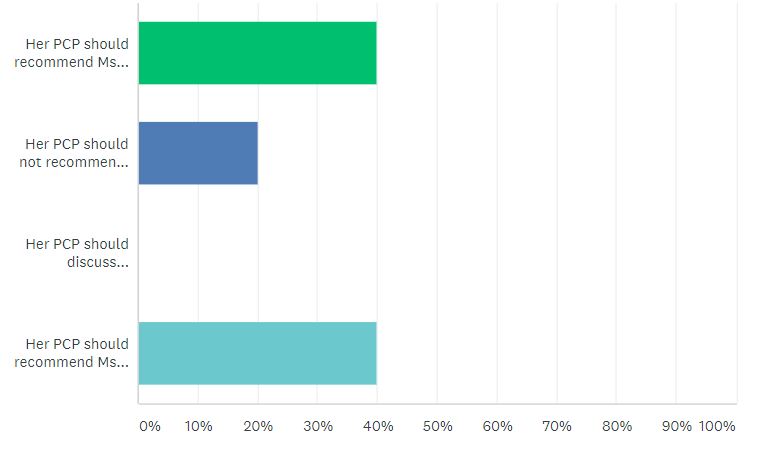January Response:
Last issue, we investigated the the case of an overweight woman who feels she is unable to complete the medically advisable weight loss program offered by her company. Let’s review:
Jane Doe is a 50 year old woman who has been having difficulties losing weight. She is overweight, and recent blood tests show that her fasting blood sugar is in the pre-diabetes range. Ms. Doe is a single mother of two teenage boys. She does not have a car and relies on public transportation to get around. She has good mobility and walks to and from the bus daily.
A local hospital has implemented a wellness program that includes a positive incentive in the form of a health insurance premium rebate for employees who meet a weight/BMI benchmark. Unfortunately, Ms. Doe currently exceeds the weight/BMI benchmark. She recently discovered that employees who do not meet the benchmark can also get the rebate by either participating in a weight control GetFit! program organized by the hospital, or by completing an online educational weight control program (henceforth called “the Online program”) if a physician determines that participation in the GetFit! program is “medically inadvisable”.
Ms. Doe visits her primary care physician to discuss her weight and the wellness program options. Her PCP tells her that she would benefit from participating in the GetFit! program because it combines diet and exercise, which should help her lose weight and hopefully prevent the development of full diabetes. After this conversation, Ms. Doe becomes tearful and says that she cannot afford to take time off work and asks her PCP to recommend her for the Online program, which she could do during her breaks. How should her PCP respond to this request?
- Her PCP should recommend Ms. Doe to the Online program even though the hospital’s GetFit! program is medically advisable.
- Her PCP should not recommend Ms. Doe to the Online program because Ms. Doe is not doing her best to try and lose weight on her own.
- Her PCP should discuss alternative options to Ms. Doe, such as herbal diet supplements.
- Her PCP should recommend Ms. Doe do the Online program with the disclaimer that Ms. Doe does not meet the exact requirements and risk denial of the recommendation.

Respondents chose either answer 1 or 4. In both scenarios, the patient is referred to the online program instead of the GetFit program. In Answer 1, the patient is referred regardless of eligibility. Answer 4 refers the patient but the physician is clear regarding her eligibility for the online program. A minority of respondents chose to not refer the patient to the online program due to her being medically ineligible (Answer 2). No respondents chose to discuss alternative options with Miss Doe (Answer 3).
March question:
John is a 70 year old man undergoing biopsy of the pancreas. You receive a call from the pathologist who gives you a preliminary histologic reading of adenocarcinoma. You pass the patient’s brother in the hall. He begs you not to tell John his diagnosis if it is cancer, because he thinks the knowledge would kill his brother even more quickly than the cancer would. A family conference to discuss the patient’s diagnosis and prognosis is scheduled for later that afternoon. What do you do next?
Tell us what you think!
Bridget Ralston is a member of The University of Arizona College of Medicine – Phoenix Class of 2020. She graduated from Santa Clara University in 2015 with a Bachelor of Science in Chemistry and a French minor. She de-stresses by whipping up delicious treats (and subsequently devouring them), playing soccer, and cuddling with her cat, Tuxedo. She has a particular interest in healthcare for underserved communities.

